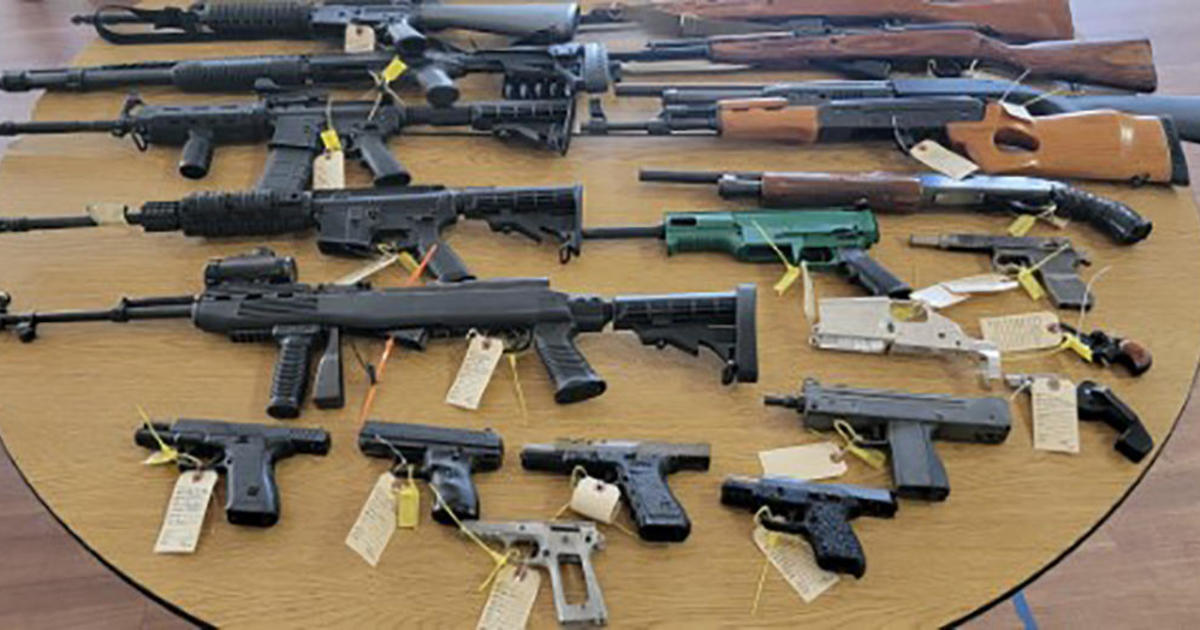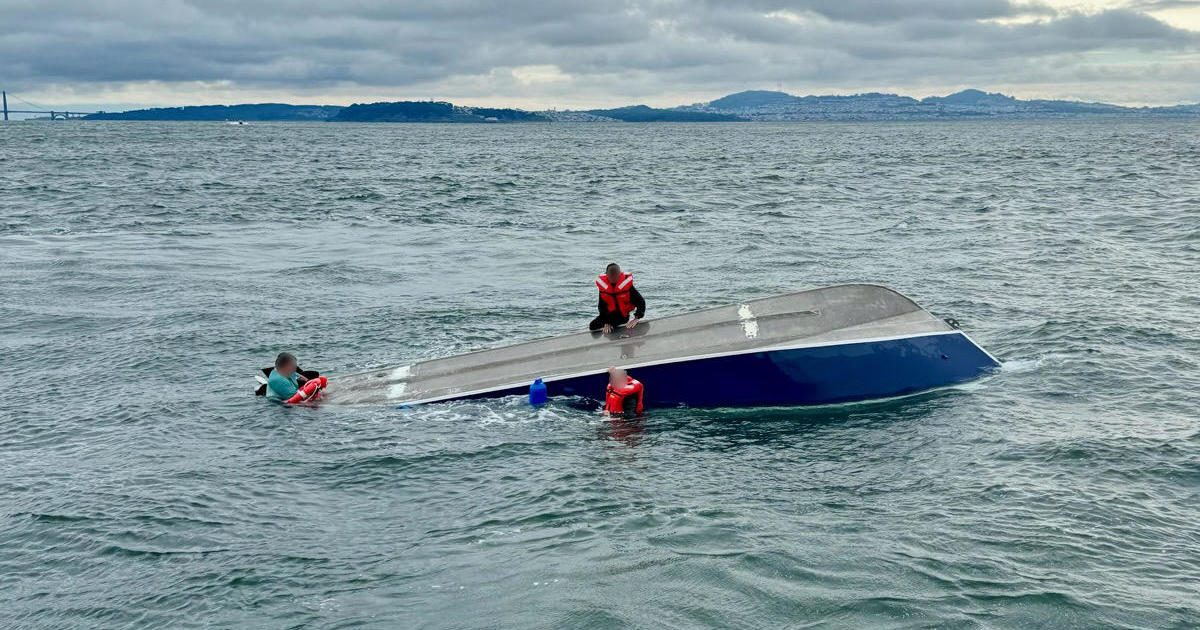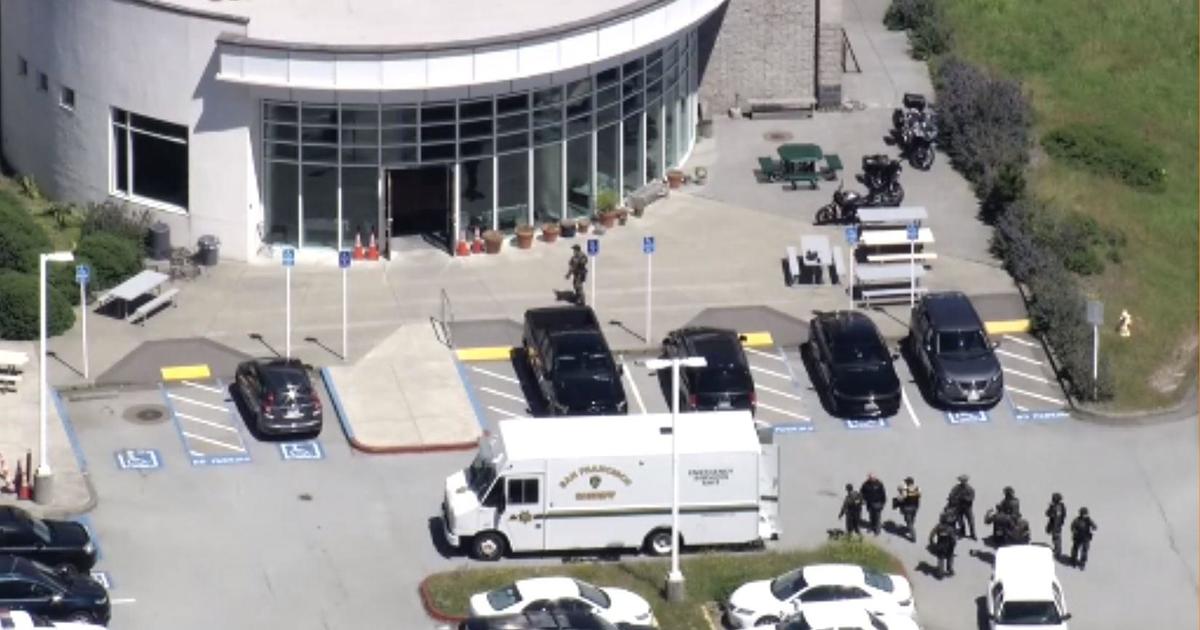Project Home: Neighbors Of San Francisco Shelter-In-Place Hotels Complain Of Increased Crime
SAN FRANCISCO (CBS SF) -- The city program directing $10 million a month to house homeless people in hotels is leading to increased crime in the form of shootings and break-ins, according to neighbors.
"It's just a safety issue, it's not about judgment, it's about safety," Donna Aldrich, a resident of San Francisco's Marina District, said.
"I'm starting to think a little bit more about being aware of my surroundings," Mike Olcese said.
Olcese and Aldrich live near one of San Francisco's Shelter in Place (SIP) hotels, they say they're constantly on edge after experiencing an increase in criminal activity and blight on their block over the past several months.
"We got two alerts of active shootings," Olcese said.
"My building has had three intruders that we know of," Aldrich said.
During one break-in someone got into Donna Aldrich's car. The next time the intruder broke into individual apartments.
"There was someone, we don't know how he got in, maybe a fire escape, maybe the roof but he was going up and down the backstairs trying the back doors of all the units and stuck his head in an open door, up at the top," Aldrich said.
Olcese has been watching this all unfold via almost daily crime alerts on his cell phone.
"There was a Citizen report yesterday that said someone was throwing knives at a tree," Olcese said.
Neighbors say these changes in criminal activity coincided with a sweeping changes both the city and the state made for people living on the street during the pandemic. Hotels that used to be reserved for tourists on Lombard Street have been given to people who were homeless who didn't have anywhere to shelter-in-place safely.
Public records obtained by KPIX 5 show 911 calls to The Buena Vista Inn near Olcese and Aldrich have tripled since the city started housing homeless people there. Going from one or two calls a month to up to 14 calls a month at its peak.
KPIX has received several complaints from neighbors living near three other hotels housing the homeless. Some complained of "open air drug use" others cited overdoses and "sexual acts being performed during the day".
At each of those hotels, emergency calls also tripled after unhoused individuals moved in, going from 22 calls over a six-month period to 60.
The city won't disclose which hotels are in use for this program and the Department of Emergency Management either left the reasons for the 911 calls on our public records requests blank or blacked them out. Both departments say the omissions are to protect people's privacy.
"We have a carte blanche ability as workers to call police, call medical and it's a rare occasion, it happens, but not that often," Russell Rosener said.
Rosener works at the Buena Vista, a SIP hotel for the homeless. He says he'd like to see people embrace this program and that it's making a big difference.
"I'm seeing a lot of people come in in a crisis and over time as they've stayed at our sites, they've gotten better and better," Rosener said.
"Thousands of vulnerable people have been able to stay safely in place, which helped them tremendously and helped San Francisco in its remarkable efforts to contain the virus," Abigail Stewart-Kahn, the Interim Director for San Francisco's Department of Homelessness and Supportive Housing, said.
Stewart-Kahn says the program has been a tremendous success, so much so that two hotels will become permanent housing, creating 350 new units for homeless residents through the state's Project Homekey program.
"One of those is The Granada and one of those is the Hotel Diva, we need to work really, really fast to move through all of the purchase and start moving people in as quickly as possible," Stewart-Kahn said.
"Is it doing what it was intended to do? Is it helping people? I actually think it's been very successful, I mean incredibly successful," Randy Shaw said.
Shaw is the Executive Director of the Tenderloin Housing Clinic, he says this program has helped make neighborhoods like the Tenderloin more safe. Instead of being on the street in front of people's homes more than 2,000 formerly homeless people have been housed, which has also reduced the potential for the spread of Covid-19.
"People who are unhoused it's a crisis for them. This became not only a crisis for them, but a health risk to everybody else," Shaw said.
The city enlisted 29 hotels for the SIP program, which costs the city $10 million a month to operate. More than 2,000 people have been brought inside because of it, but the city has not been transparent throughout this process.
When we asked why journalists and neighbors don't have the right to know who is staying where we were referred to the City Attorney's office.
When we brought up neighbors' concerns of increased crime, break-ins and gunshots we were told by Stewart-Kahn, "often those are at hotels that are not controlled by the city so there's a lot of misinformation out there."
But we have confirmed that the Buena Vista hotel is a city run SIP hotel and homeless residents might be staying there until June of 2021.
"If they're going to fund these projects with public funds, part of that funding needs to be for security," Aldrich said.
The next step is going to be transitioning people out of the majority of these SIP hotels over the coming months. The city says these hotels are too expensive to maintain.
Stewart-Kahn says the hope is that FEMA will reimburse the city for the money spent so far, but because FEMA works on a reimbursement basis the amount of money the city will get back is unclear, that's why she says it's time to start transitioning people out of these hotels and into housing now.



